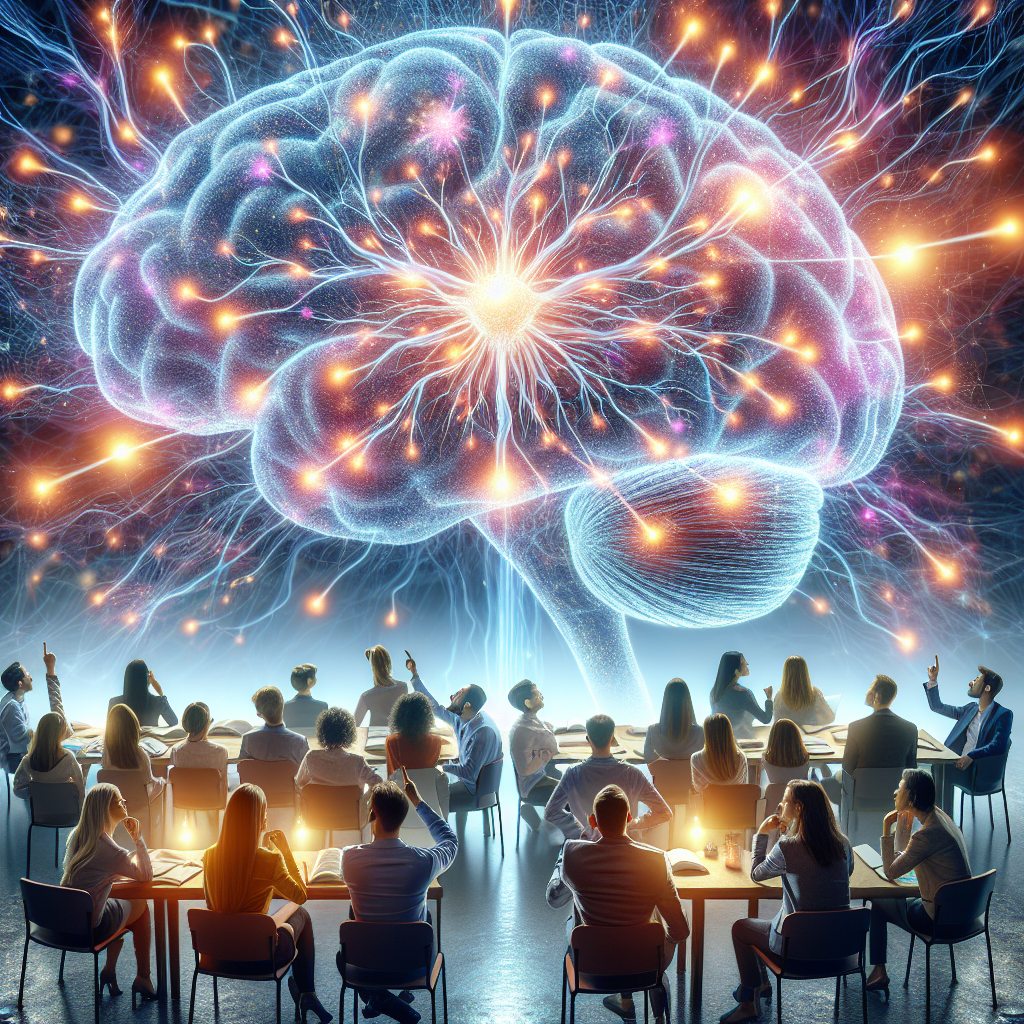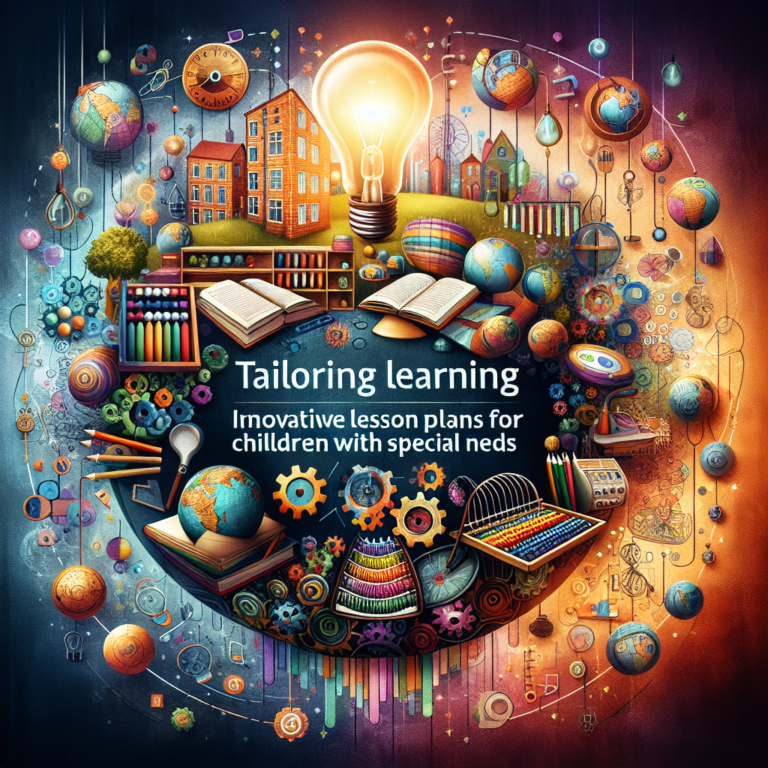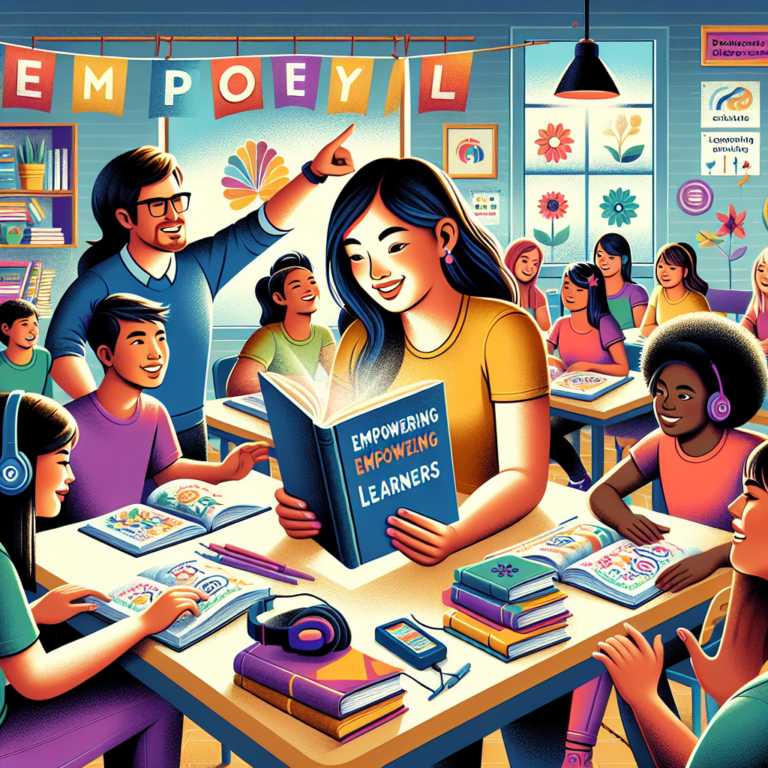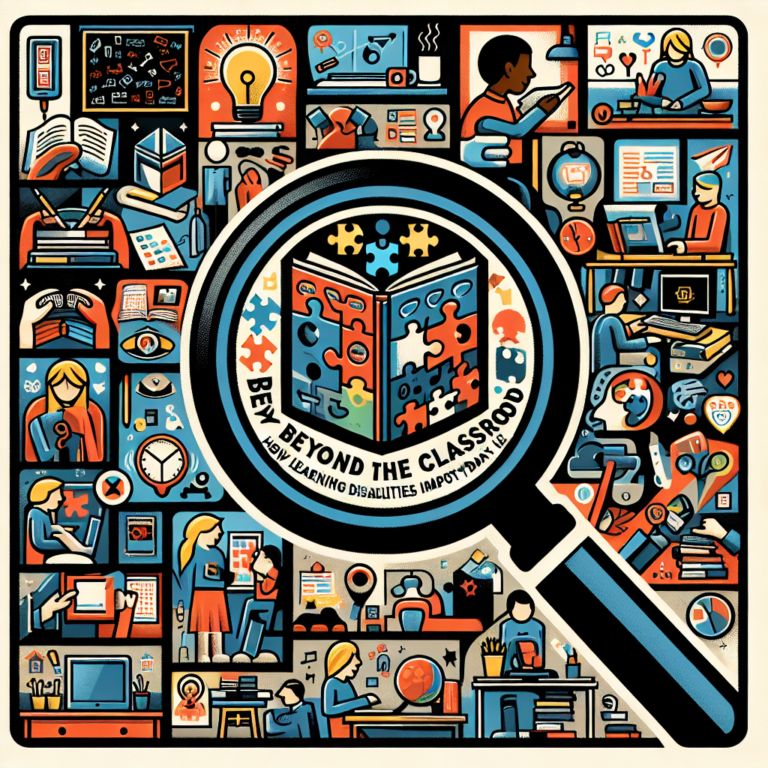
The Ultimate Guide to The Impact of Learning Disabilities on Memory: Insights from Recent Research
Introduction: The Quiet Struggle of Learning Disabilities
Imagine trying to navigate a complex maze without the ability to remember the paths you’ve taken. For many individuals with learning disabilities, this metaphor represents their daily challenges with memory retention and recall. Learning disabilities can profoundly influence various cognitive functions, particularly memory, causing considerable obstacles in educational, professional, and social environments. Exploring the impact of learning disabilities on memory is not just an academic exercise; it’s vital for educators, parents, and advocates to better understand these struggles. In this article, we will delve into The Impact of Learning Disabilities on Memory: Insights from Recent Research, offering valuable insights that can empower those affected and those who support them.
Understanding Learning Disabilities
Defining Learning Disabilities
Learning disabilities (LD) are neurological conditions that affect how individuals receive, process, and respond to information. Common types include dyslexia (reading difficulties), dyscalculia (math difficulties), and dysgraphia (writing difficulties). Each type poses unique challenges, yet all can significantly affect memory functions, leading to various cognitive and emotional consequences.
How Memory Works
Memory is a complex brain function, primarily categorized into three types: short-term memory, long-term memory, and working memory. Understanding these distinctions helps clarify the challenges faced by individuals with learning disabilities. Short-term memory involves temporarily holding information, while long-term memory stores information for the long haul. Working memory integrates these two types, allowing individuals to manipulate and use information actively. Deficits in any of these memory types can exacerbate the difficulties associated with learning disabilities.
The Impact of Learning Disabilities on Memory
Memory Impairments: A Closer Look
Recent research has illuminated the intricate ways in which learning disabilities affect memory. For instance, studies show that individuals with dyslexia often struggle with phonological memory—important for tasks like reading. Similarly, dyscalculia is associated with difficulties in working memory, impacting problem-solving abilities in mathematics.
| Memory Type | Definition | Impact from Learning Disabilities |
|---|---|---|
| Short-term memory | Holds information temporarily | Difficulty recalling instructions |
| Long-term memory | Stores information over time | Challenges retaining acquired knowledge |
| Working memory | Manipulates information actively | Hindered ability to follow multi-step directions |
Case Study 1: The Struggles of a Young Boy with Dyslexia
Profile: Liam, a 10-year-old diagnosed with dyslexia, found it hard to remember verbal instructions during class. His teacher often instructed him to read a passage and answer questions but noticed his frustration and inability to recall specific details.
Analysis: This case emphasizes how phonological memory deficits directly influence educational performance. Recent research suggests that targeted interventions, like multisensory learning approaches, can enhance memory retention for dyslexic students like Liam.
The Role of Emotions and Anxiety in Memory
The Emotional Toll of Learning Disabilities
Individuals with learning disabilities often experience heightened levels of anxiety and frustration, directly impacting memory capabilities. Stress hormones, such as cortisol, can impair memory consolidations, making everyday learning a daunting task for these individuals.
Case Study 2: Sarah’s Experience with Anxiety
Profile: Sarah, a college student with a history of dysgraphia, exhibits signs of anxiety when tasked with written assignments. As deadlines approach, her ability to remember content diminishes, causing a cycle of stress and poor performance.
Analysis: Sarah’s situation highlights a common issue: anxiety can significantly affect an individual’s cognitive functions. Recent studies advocate for integrating emotional support and coping strategies alongside academic interventions to alleviate anxiety’s impact on memory.
Neuroscientific Insights
Brain Imaging Studies
Emerging neuroscientific research using MRI and fMRI scans reveals that individuals with learning disabilities may have structural and functional differences in specific brain regions associated with memory processing. For instance, altered activity in the hippocampus—crucial for memory formation—has been observed in individuals with dyslexia.
Case Study 3: The Brain of an Individual with Dyscalculia
Profile: A recent study involved imaging the brains of individuals diagnosed with dyscalculia. The findings showed decreased activation in regions related to numerical processing and working memory.
Analysis: This evidence underscores that the impact of learning disabilities on memory is not purely psychological but has concrete neurological underpinnings, reaffirming the need for specialized educational approaches based on neuroscientific findings.
Practical Implications and Strategies
Tailored Educational Approaches
Understanding the impact of learning disabilities on memory can lead to the development of tailored educational strategies. For instance, the "chunking" method can help individuals with memory retention by breaking down information into manageable units.
Table 2: Effective Strategies for Enhancing Memory
| Strategy | Description | Targeted Learning Disabilities |
|---|---|---|
| Multisensory Learning | Engaging multiple senses during teaching | Dyslexia, Dyscalculia |
| Graphic Organizers | Utilizing visual aids to structure information | Various learning disabilities |
| Memory Games | Incorporating games that stimulate recall | ADHD, Dysgraphia |
| Repetition and reinforcement | Regular review of material to strengthen memory | Dyslexia, General learning disabilities |
Real-World Applications: From Classroom to Workforce
Bridging the Gap: Educators’ Roles
Teachers play a crucial role in supporting students with learning disabilities. By incorporating evidence-based strategies that cater to their memory issues, educators can foster an inclusive environment that values diverse learning needs.
Case Study 4: Classroom Interventions
Scenario: A fourth-grade teacher employed a variety of teaching techniques, including visual aids and interactive activities, catering to students with varying learning disabilities. The result was a measurable improvement in memory recall and classroom participation.
Analysis: This case illustrates the positive outcomes possible when educators understand The Impact of Learning Disabilities on Memory: Insights from Recent Research. Adjustments in teaching practices can significantly enhance educational experiences for students grappling with memory issues.
Conclusion: A Path to Empowerment
The impact of learning disabilities on memory is profound, affecting individuals’ educational, professional, and social trajectories. However, recent research sheds light on practical strategies and interventions that can foster resilience and enhance memory skills for those affected. By understanding the neurological, emotional, and educational aspects, we can create supportive environments that encourage success, empowering individuals with learning disabilities to thrive.
Actionable Insights
- Awareness: Recognize how learning disabilities can affect memory and approach support with empathy and tailored strategies.
- Advocacy: Promote awareness of diverse learning needs within educational institutions and workplaces.
- Collaboration: Encourage collaboration between educators, psychologists, and parents to support affected individuals holistically.
FAQs Section
Q1: What are the main types of learning disabilities?
A1: Common types include dyslexia (reading difficulties), dysgraphia (writing difficulties), and dyscalculia (math difficulties), each impacting memory functions uniquely.
Q2: Can memory strategies improve outcomes for individuals with learning disabilities?
A2: Yes, evidence-based memory strategies like using visual aids and multisensory learning can significantly enhance information retention and recall.
Q3: How can anxiety affect memory in individuals with learning disabilities?
A3: Anxiety can trigger stress responses that impair the ability to consolidate and retrieve memories, creating a cycle that further hampers learning.
Q4: Are there neurological differences in individuals with learning disabilities?
A4: Research using brain imaging has shown structural and functional differences in areas of the brain related to memory, lending insight to the cognitive challenges faced.
Q5: How can educators better support students with learning disabilities?
A5: Teachers can employ differentiated instruction, utilize multisensory approaches, and provide emotional support to foster a conducive learning environment.
The exploration of The Impact of Learning Disabilities on Memory: Insights from Recent Research reveals a complex interplay between neurological, emotional, and educational factors. Through understanding and compassion, we can better support those facing these challenges, paving the way for success and fulfillment.















